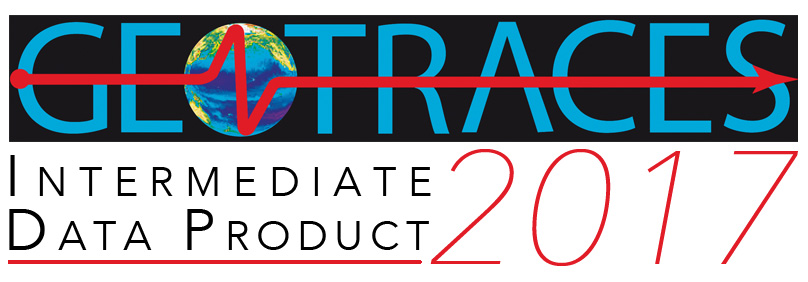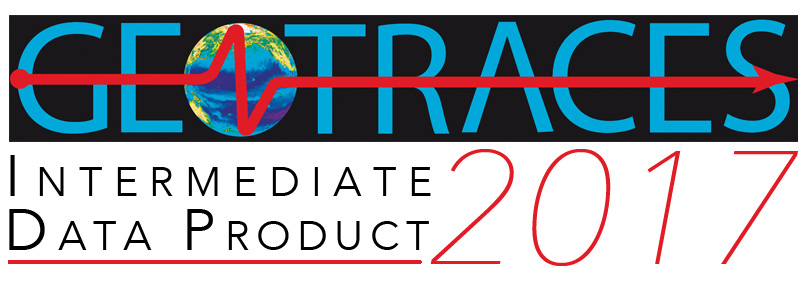GEOTRACES Town Halls at 2018 Ocean Sciences Meeting
Release of new GEOTRACES Data Product
Wednesday, February 14, 2018, 12:45 PM – 01:45 PM
Oregon Convention Center – D137-D138
2018 Ocean Sciences Meeting
(Portland, Oregon, USA, http://osm.agu.org/2018/)
GEOTRACES, an international study of the marine biogeochemical cycles of trace elements and their isotopes, has released its second data product (IDP2017). The new data product expands greatly on the first collection of results released in 2014 in two important ways: 1) by adding a substantial body data from new cruises and 2) by adding additional datasets not available in the 2014 data product from cruises across the five world Oceans (e.g. aerosols, isotopes and biological parameters that support the emerging BioGEOTRACES initiative). This expanded set of parameters available in the IDP2017, ranging across micronutrients, contaminants, radioactive and stable isotopes and a broad suite of hydrographic parameters used to trace water masses provides an unprecedented means to understand the role of trace elements in shaping the functioning of the Ocean system. We invite everyone to this town hall to learn about accessing IDP2017 and how it can be used for interdisciplinary research and teaching applications: http://www.bodc.ac.uk/geotraces/data/idp2017/
Organizers: Robert F Anderson, Columbia University of New York; Alessandro Tagliabue, University of Liverpool; Gregory A Cutter, Old Dominion University and Maria Teresa Maldonado, University of British Columbia.

Developing a framework for trace element, isotope, and other biogeochemical research in the Gulf of Mexico and Caribbean Sea
Tuesday, February 13, 2018, 12:45 PM – 01:45 PM
Oregon Convention Center – D137-D138
2018 Ocean Sciences Meeting
(Portland, Oregon, USA, http://osm.agu.org/2018/)
In addition to their dynamical influence on the formation of the Gulf Stream, the Gulf of Mexico and Caribbean Sea are strongly affected by continental margin processes such as major river inputs and significant submarine groundwater discharges. GEOTRACES studies have increasingly demonstrated the importance of ocean margins in affecting trace element and isotope (TEI) fluxes to the open ocean. Given the importance of these marginal fluxes for cycling of carbon and nutrients, the Gulf of Mexico has been a regional focus for recent OCB activities. However, these activities, as well as the 2010 Deepwater Horizon oil spill, have revealed major gaps in our understanding of how inputs to the shelf influence biogeochemical and biological processes in open waters, especially with regard to TEIs. Most such Gulf studies have focused on the Louisiana and West Florida shelves, with little attention to open waters and interactions with the Loop Current. The steering committees of US GEOTRACES and OCB are beginning a conversation devoted to TEI research in the Gulf of Mexico and Caribbean. We invite GEOTRACES, OCB, and other ocean scientists interested in these marginal seas to discuss processes of interest, existing programs and data sets, and potential steps forward.
Organizers: Alan M Shiller, University of Southern Mississippi; Heather M Benway, Woods Hole Oceanographic Inst.; Robert F Anderson, Columbia University & Lamont-Doherty Earth Observatory; Angela N Knapp, Florida State University; Benjamin S Twining, Bigelow Lab for Ocean Sciences and Kristen N Buck, University of South Florida.

